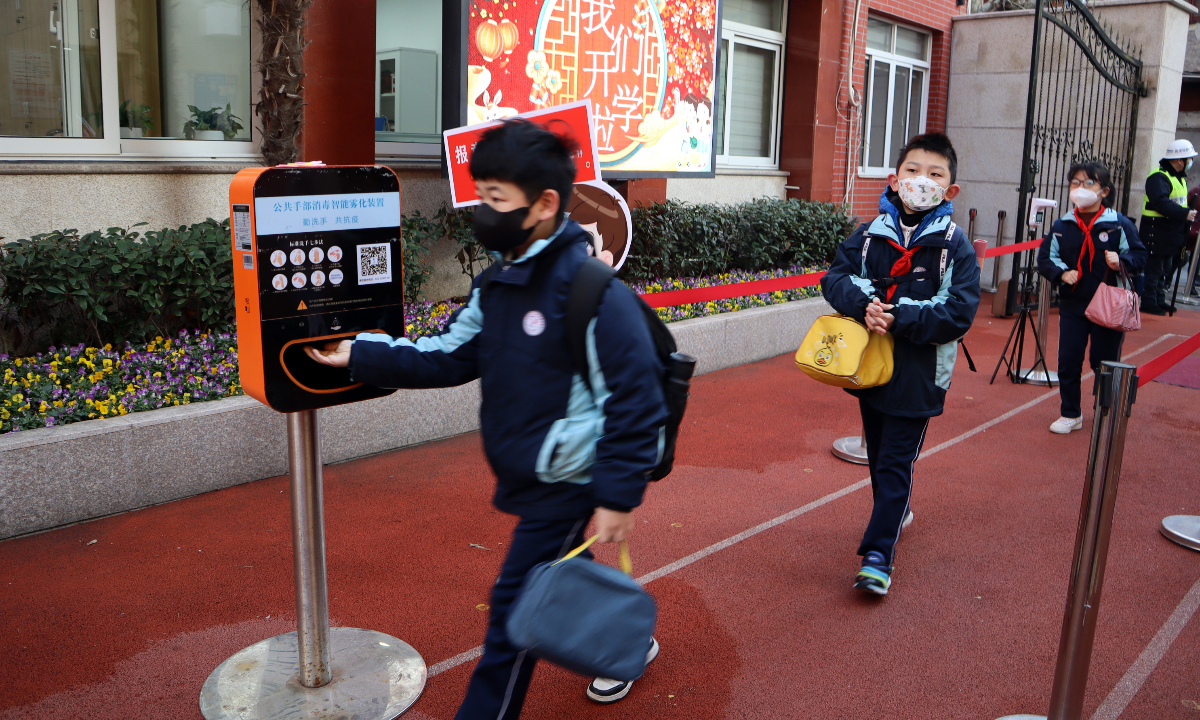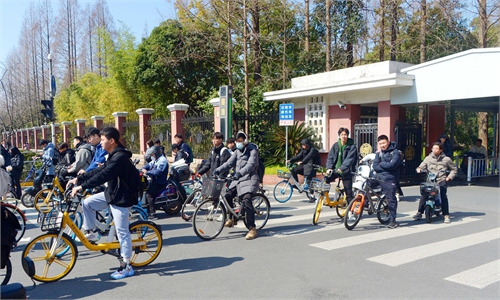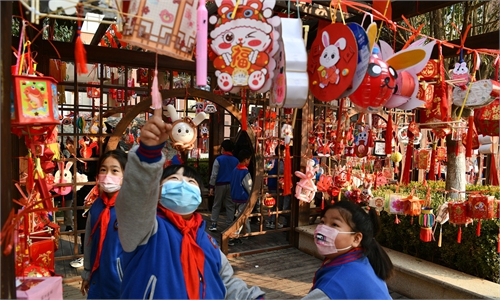In-person education suspended in cities across China due to cluster fevers unrelated to COVID-19 resurgence

Students sanitize their hands before entering a primary school in Shanghai on February 15, 2023. Photo: IC
After multiple primary and high schools in Chinese cities suspended courses after reporting cluster fever cases over the past few days, experts dispelled concerns over a strong COVID wave, saying they could be caused by other viruses or students' sudden change of schedule.
Primary and high schools in cities including Hangzhou, Ningbo and Jinhua in East China's Zhejiang Province have turned some of their classes' lessons online, after a few students suffered fevers including some were diagnosed with COVID-19 in one week of the start of the first semester following China's relaxation of most of its COVID-19 control measures.
A primary school in Shanghai's Qingpu district also suspended in-person education from Monday till Thursday as four students were diagnosed with H1N1 and more others suffered from fevers and other symptoms of influenza, The Paper reported on Tuesday.
A school in Beichen district in North China's Tianjin suspended some in-person teaching on Monday and Tuesday. However, nucleic acid test results on all the diseased students were negative and the students' fever turned out to be caused by Influenza A (H1N1).
The disease prevention and control authority in Ningbo said H1N1 and norovirus infections currently have also entered a high-incidence season. Officials advised parents to have their children to take antigen tests to confirm the diagnosis.
Monitoring in East China's Anhui Province also showed that influenza viruses have become more active lately. The prevailing H1N1 has caused a number of cluster infections at schools and kindergartens.
According to Jiang Chunming, director of the department of pediatrics at the Affiliated Hangzhou First People's Hospital, Zhejiang University School of Medicine, the first two weeks after winter vacation are usually the peaks of pediatrics department visits. There is no sign of a resurgence of the COVID-19 epidemic, Jiang told the Paper on Tuesday.
The quick warming up of temperatures, the gathering of students and higher risks of cross-infection, and some children not adapted to school schedule after holidays jointly contributed to a lower immunity and higher chance of diseases.
The department of pediatrics at Jiang's hospital saw a maximum of nearly 700 outpatient visits a day recently, more than three times the usual number. But it is basically equivalent to the number at the beginning of spring semester in previous years. No major surge in numbers was observed.
The local epidemic prevention and control authorities also noted that it is a normal phenomenon for students who had never been infected with COVID-19 to contract the virus for the first time, but that does not mean a new wave of epidemic. The local epidemic still remains at a low level of prevalence, Hangzhou Daily reported Monday.
Both the latest reports released by Chinese Center for Disease Control and Prevention (China's CDC) and Chinese National Influenza Center showed that the positive rate of influenza virus has increased nationwide between February 6 and 12.
Global Times-Agencies



